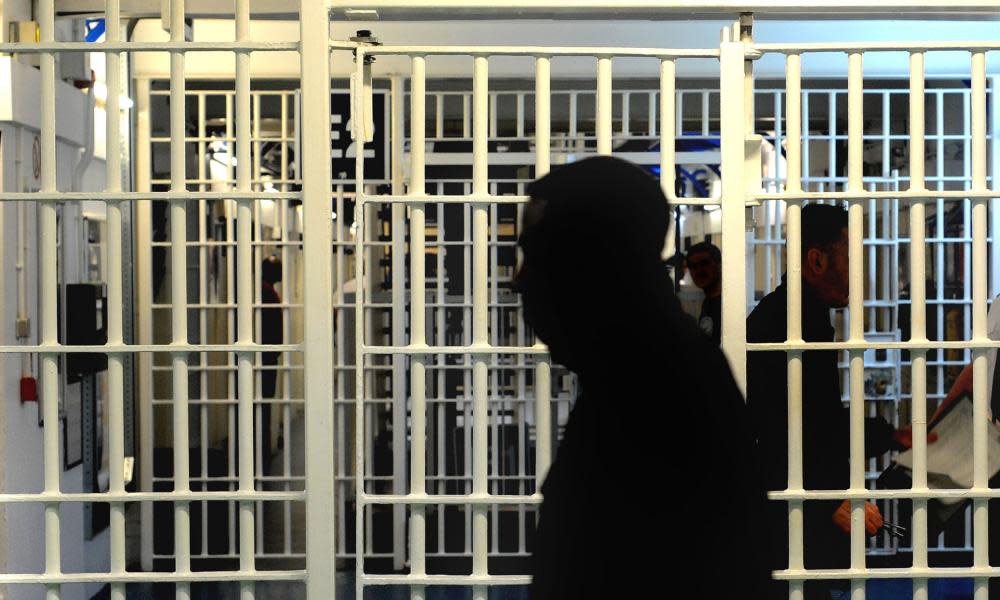Children in solitary confinement for 23 hours a day, says report

Children are being held in “harmful” solitary confinement in prison with some let out of their cells for just 15 minutes a day, a damning report from jail inspectors said.
Peter Clarke, the chief inspector of prisons, has called for a “major overhaul” of the policy of separating children in young offender institutions (HMYOIs). He said this in effect amounted to them being held in “harmful solitary confinement with little human contact and in conditions which risk damaging their mental health”.
Related: The Guardian view on youth jails: Feltham isn’t the only problem | Editorial
He called for an entirely new approach after his report found fundamental flaws in the use of separation at the five establishments in England and Wales, which hold about 600 offenders aged 15-18.
About one in 10 young offenders spoken to by inspectors had been separated during their time in custody and “in the worst cases children left their cells for just 15 minutes a day”.
In one case, a child in crisis was “left to lie on a mattress on the floor of a filthy cell for more than 22 hours a day with no meaningful contact”, the report says.
Responding to the findings, Anne Longfield, the children’s commissioner for England, told the Guardian: “This report paints a grim picture of the treatment of some of the most vulnerable children in YOIs. My office published a report on segregation in 2018 which raised many of these issues and the HMIP report supports our finding that some children segregated in YOIs are subject to conditions amounting to solitary confinement.
“Separation can have a profound impact on the mental health of young people and these harmful practices are not being properly recorded. Some of the conditions described in the HMIP report are dreadful and show a system which too often is failing to rehabilitate young people in prison.
“The whole system needs to be overhauled and data on these practices should be published in order to provide better oversight and improve chances of rehabilitation.”
The five YOIs were: Cookham Wood in Kent, Feltham A in west London, Parc in south Wales, Werrington in Staffordshire, and Wetherby and Keppel in West Yorkshire.
The report, based on an inspection in May and June, found “multiple and widespread failings”, although it said there were some areas of better practice, such as in HMYOI Parc.
Inspectors found “significant” cause for concern in 57 cases it reviewed and 85 interviews it conducted with inmates and staff.
Clarke said: “The regime offered to most separated children was inadequate. Nearly all separated children spent long periods of time in their cell without any meaningful human interaction.
“We found children who were unable to access the very basics of everyday life, including a daily shower and telephone call.”
Managers asked bosses for authorisation to hold children in separation for more than 21 days on 346 occasions between May 2018 and April 2019 and none of the requests were rejected, the report says.
Other findings revealed eight children who had spent a combined total of 373 days in separation and were waiting to be taken to a secure hospital for treatment for mental health conditions.
Children who had self-harmed were left “isolated in unfurnished accommodation” and had been restrained, contrary to rules.
There would be occasions when it was in a child’s best interests to be separated for the risk they posed to others, or for their own protection, inspectors said. But staff should still ensure they have access to daily activities during this time and work to reintroduce them to a normal regime, the report recommends.
The justice minister, Wendy Morton, said: “It is difficult to read this report and not conclude that we are failing some of the children in our care – that is completely unacceptable and I am determined it will not continue.”
She said separation could be “necessary” but “there is absolutely no excuse for some of the practices highlighted in this report, and I have asked my officials to urgently set out the steps we need to take to stop them happening”.


